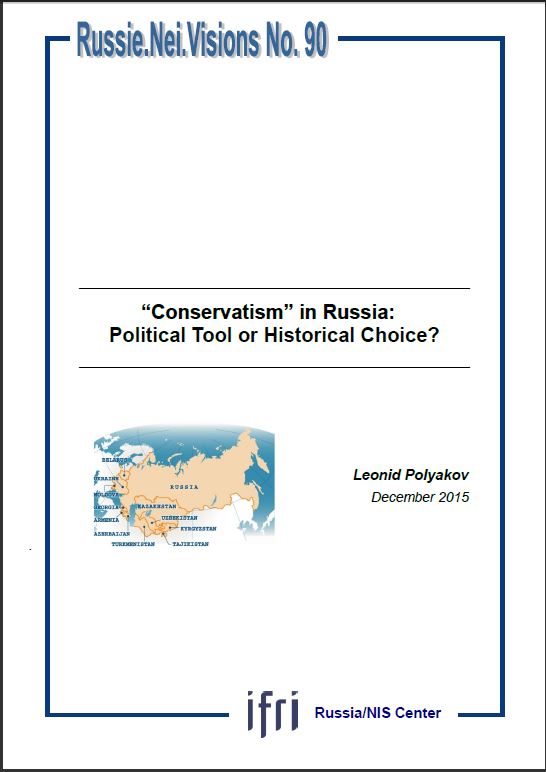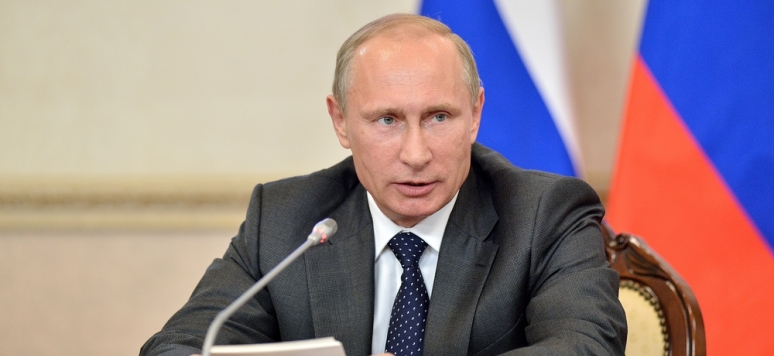“Conservatism” in Russia: Political Tool or Historical Choice?

President Vladimir Putin’s third term of office proceeds under the “conservative shift.” Does this mean that the Russian government has finally opted for conservatism as its official—though not state—ideology, with long-term consequences for both its domestic policy and foreign policies?

Or is the reversion to conservatism merely the latest in a line of political devices used by the Kremlin to solve its own problems—which include the struggle against liberal opposition and the need to increase the regime’s legitimacy?
Both points of view are represented in the writings of Russian and foreign experts. This article attempts to take into account the arguments of both sides while at the same time suggesting that the “shift back to conservatism” is something more than the latest in a line of political devices by the Kremlin. And whether or not the Russian government solves a few of its immediate problems with its help, the turn to conservatism itself provides new potential opportunities for the alignment of a long-term strategy.
As far as domestic policy is concerned, conservatism as a meta-narrative may appear to be a continuation of the earlier “sovereign democracy” discourse while at the same time offering an ideology to cement Russian federalism. In foreign policy, a conservative Russia may appear a more desirable partner not only for the European right but also for the countries of the Asia-Pacific region. This is significant given the recent “pivot to Asia” clearly signaled in Russian foreign policy.
Leonid Polyakov is a professor in the Political Sciences department at the Social Sciences faculty of the National Research University Higher School of Economics, in Moscow.
Download the full analysis
This page contains only a summary of our work. If you would like to have access to all the information from our research on the subject, you can download the full version in PDF format.
“Conservatism” in Russia: Political Tool or Historical Choice?
Related centers and programs
Discover our other research centers and programsFind out more
Discover all our analysesThe Caspian Sea as an Emerging Energy Hub : Potentials and Limitations
This report analyzes the prospects of the Caspian Sea region — and its key actors except for Russia and Iran — becoming an important energy hub serving the needs of the European Union (EU).
The European Union's Strategic Test in Georgia
The political crisis brewing in Georgia is of an existential nature for the country. What is at stake is Georgia's future as a democratic and sovereign European nation (EU).
Commanders of Putin's Long War: Purged, Reshuffled and Disgruntled
The trend of reshuffling the Russian top military command in the course of a fast-evolving and far from successful war has progressed unevenly both across the Armed Forces’ structures and in time. The rationale for and timing of the abrupt cadre decisions made by Commander-in-Chief Putin often defy logical explanation, and the rare official clarifications are no more informative than the usual information blackout.
Russian Military Manpower After Two and a Half Years of War in Ukraine
In addition to a military victory in Ukraine, the Russian leadership is planning to build up sizable troop formations for a possible conflict with NATO in the Baltic region and the Kola Peninsula. In particular, current plans aim for the military manpower to grow by about 350,000, reaching a total of 1.5 million soldiers and commanders. In the context of the current conflict in Ukraine, this cannot be accomplished without a new wave of mass mobilization.









